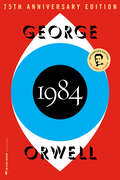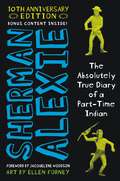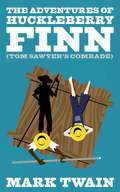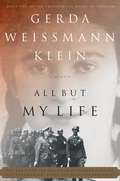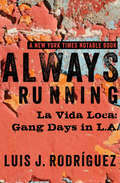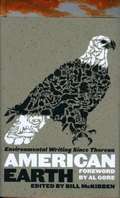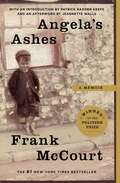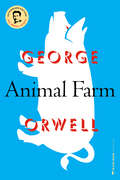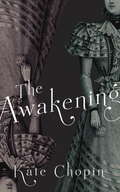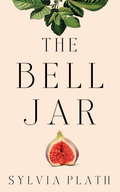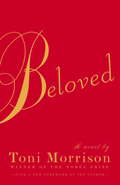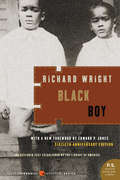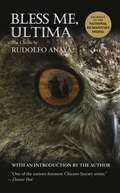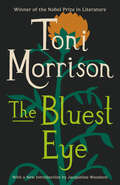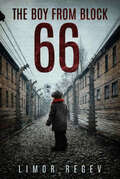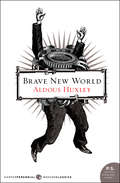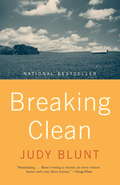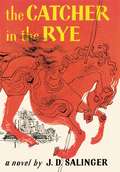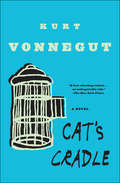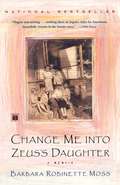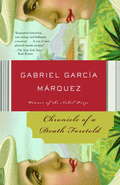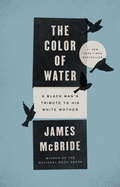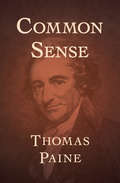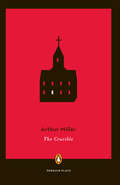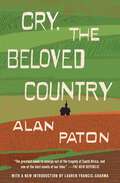Special Collections
Flagstaff Unified School District High School
Description: Board Approved Novels for High School Grades 9-12
- Table View
- List View
1984
by George OrwellA PBS Great American Read Top 100 Pick
With extraordinary relevance and renewed popularity, George Orwell’s 1984 takes on new life in this edition. “Orwell saw, to his credit, that the act of falsifying reality is only secondarily a way of changing perceptions. It is, above all, a way of asserting power.”—The New Yorker.
In 1984, London is a grim city in the totalitarian state of Oceania where Big Brother is always watching you and the Thought Police can practically read your mind. Winston Smith is a man in grave danger for the simple reason that his memory still functions. Drawn into a forbidden love affair, Winston finds the courage to join a secret revolutionary organization called The Brotherhood, dedicated to the destruction of the Party. Together with his beloved Julia, he hazards his life in a deadly match against the powers that be.
Lionel Trilling said of Orwell’s masterpiece, “1984 is a profound, terrifying, and wholly fascinating book. It is a fantasy of the political future, and like any such fantasy, serves its author as a magnifying device for an examination of the present.”
Though the year 1984 now exists in the past, Orwell’s novel remains an urgent call for the individual willing to speak truth to power.
The Absolutely True Diary of a Part-Time Indian
by Sherman AlexieA New York Times bestseller—over 1 million copies sold! A National Book Award winner A Boston Globe-Horn Book Award winnerBestselling author Sherman Alexie tells the story of Junior, a budding cartoonist growing up on the Spokane Indian Reservation. Determined to take his future into his own hands, Junior leaves his troubled school on the rez to attend an all-white farm town high school where the only other Indian is the school mascot. Heartbreaking, funny, and beautifully written, The Absolutely True Diary of a Part-Time Indian, which is based on the author's own experiences, coupled with poignant drawings by Ellen Forney that reflect the character's art, chronicles the contemporary adolescence of one Native American boy as he attempts to break away from the life he was destined to live. With a forward by Markus Zusak, interviews with Sherman Alexie and Ellen Forney, and black-and-white interior art throughout, this edition is perfect for fans and collectors alike.
The Adventures of Huckleberry Finn
by Mark TwainSail down the Mississippi with rascally Huck Finn! Huck Finn spits, swears, smokes a pipe and never goes to school. With his too-big clothes and battered straw hat, Huck is in need of 'civilising', and the Widow Douglas is determined to take him in hand. And wouldn't you know, Huck's no-good Pap is also after him and he locks Huck up in his cabin in the woods. But Huck won't stand too much of this, and after a daring escape, he takes off down the Mississppi on a raft with a runaway slave called Jim. But plenty of dangers wait for them along the river -- will they survive and win their freedom?
All but My Life
by Gerda Weissmann KleinAll But My Life is the unforgettable story of Gerda Weissmann Klein's six-year ordeal as a victim of Nazi cruelty. From her comfortable home in Bielitz (present-day Bielsko) in Poland to her miraculous survival and her liberation by American troops--including the man who was to become her husband--in Volary, Czechoslovakia, in 1945, Gerda takes the reader on a terrifying journey. Gerda's serene and idyllic childhood is shattered when Nazis march into Poland on September 3, 1939. Although the Weissmanns were permitted to live for a while in the basement of their home, they were eventually separated and sent to German labor camps. Over the next few years Gerda experienced the slow, inexorable stripping away of "all but her life." By the end of the war she had lost her parents, brother, home, possessions, and community; even the dear friends she made in the labor camps, with whom she had shared so many hardships, were dead. Despite her horrifying experiences, Klein conveys great strength of spirit and faith in humanity. In the darkness of the camps, Gerda and her young friends manage to create a community of friendship and love. Although stripped of the essence of life, they were able to survive the barbarity of their captors. Gerda's beautifully written story gives an invaluable message to everyone. It introduces them to last century's terrible history of devastation and prejudice, yet offers them hope that the effects of hatred can be overcome.
Always Running
by Luis J. RodríguezThe award-winning memoir of life in an LA street gang from the acclaimed Chicano author and former Los Angeles Poet Laureate.
“Fierce, and fearless” (The New York Times)
Luis J. Rodríguez joined his first gang at age eleven. As a teenager, he witnessed the rise of some of the most notorious cliques in Southern California. He grew up knowing only a life of violence—one that revolved around drugs, gang wars, and police brutality. But unlike most of those around him, Rodríguez found a way out when art, writing, and political activism gave him a new path—and an escape from self-destruction.
Always Running spares no detail in its vivid, brutally honest portrayal of street life and violence, and it stands as a powerful and unforgettable testimonial of gang life by one of the most acclaimed Chicano writers of his generation. This ebook features an illustrated biography of Luis J. Rodríguez including rare images from the author&’s personal collection.
American Earth
by Al Gore and Bill MckibbenAs America and the world grapple with the consequences of global environmental change, writer and activist Bill McKibben offers this unprecedented, provocative, and timely anthology, gathering the best and most significant American environmental writing from the last two centuries. Classics of the environmental imagination'the essays of Henry David Thoreau, John Muir, and John Burroughs; Aldo Leopold's A Sand County Almanac; Rachel Carson's Silent Spring are set against the inspiring story of an emerging activist movement, as revealed by newly uncovered reports of pioneering campaigns for conservation, passages from landmark legal opinions and legislation, and searing protest speeches. Here are some of America's greatest and most impassioned writers, taking a turn toward nature and recognizing the fragility of our situation on earth and the urgency of the search for a sustainable way of life. Thought-provoking essays on overpopulation, consumerism, energy policy, and the nature of "nature" join ecologists' memoirs and intimate sketches of the habitats of endangered species. The anthology includes a detailed chronology of the environmental movement and American environmental history, as well as an 80-page color portfolio of illustrations.
Angela's Ashes
by Frank McCourtA Pulitzer Prize–winning, #1 New York Times bestseller, Angela’s Ashes is Frank McCourt’s masterful memoir of his childhood in Ireland—now with a new introduction by Patrick Radden Keefe.
“When I look back on my childhood I wonder how I managed to survive at all. It was, of course, a miserable childhood: the happy childhood is hardly worth your while. Worse than the ordinary miserable childhood is the miserable Irish childhood, and worse yet is the miserable Irish Catholic childhood.” So begins the luminous memoir of Frank McCourt, born in Depression-era Brooklyn to recent Irish immigrants and raised in the slums of Limerick, Ireland.
Frank’s mother, Angela, has no money to feed the children since Frank’s father, Malachy, rarely works, and when he does he drinks his wages. Yet Malachy—exasperating, irresponsible, and beguiling—does nurture in Frank an appetite for the one thing he can provide: a story. Frank lives for his father’s tales of Cuchulain, who saved Ireland, and of the Angel on the Seventh Step, who brings his mother babies.
Perhaps it is story that accounts for Frank’s survival. Wearing rags for diapers, begging a pig’s head for Christmas dinner and gathering coal from the roadside to light a fire, Frank endures poverty, near-starvation and the casual cruelty of relatives and neighbors—yet lives to tell his tale with eloquence, exuberance, and remarkable forgiveness.
Angela’s Ashes, imbued on every page with Frank McCourt’s astounding humor and compassion, is a glorious book that bears all the marks of a classic.
Animal Farm
by George OrwellGeorge Orwell's classic satire of the Russian Revolution is an intimate part of our contemporary culture.
It is the account of the bold struggle, initiated by the animals, that transforms Mr. Jones's Manor Farm into Animal Farm--a wholly democratic society built on the credo that All Animals Are Created Equal.
Out of their cleverness, the pigs Napoleon, Squealer, and Snowball emerge as leaders of the new community in a subtle evolution that proves disastrous.
The climax is the brutal betrayal of the faithful horse Boxer, when totalitarian rule is reestablished with the bloodstained postscript to the founding slogan: But some Animals Are More Equal Than Others. . . .
The Awakening
by Kate ChopinThe Pontellier family are spending a hot, lazy holiday on the Gulf of Mexico. No-one expects that Edna Pontellier should be preoccupied with anything more than her husband and children. When an illicit summer romance awakens new ideas and longings in Edna, she can barely understand herself, and cannot hope for aid or acceptance in the stifling attitudes of Louisiana society. Kate Chopin's compelling, candid portrait of a woman attempting to break free caused an outcry when first published in 1899.
The Bell Jar
by Sylvia PlathI was supposed to be having the time of my life. When Esther Greenwood wins an internship on a New York fashion magazine in 1953, she is elated, believing she will finally realise her dream to become a writer. But in between the cocktail parties and piles of manuscripts, Esther's life begins to slide out of control. She finds herself spiralling into depression and eventually a suicide attempt, as she grapples with difficult relationships and a society which refuses to take women's aspirations seriously. The Bell Jar, Sylvia Plath's only novel, was originally published in 1963 under the pseudonym Victoria Lucas. The novel is partially based on Plath's own life and descent into mental illness, and has become a modern classic. The Bell Jar has been celebrated for its darkly funny and razor sharp portrait of 1950s society and has sold millions of copies worldwide.
Beloved
by Toni MorrisonStaring unflinchingly into the abyss of slavery, this spellbinding novel transforms history into a story as powerful as Exodus and as intimate as a lullaby.
Sethe, its protagonist, was born a slave and escaped to Ohio, but eighteen years later she is still not free.
She has too many memories of Sweet Home, the beautiful farm where so many hideous things happened.
And Sethe's new home is haunted by the ghost of her baby, who died nameless and whose tombstone is engraved with a single word: Beloved.
Filled with bitter poetry and suspense as taut as a rope, Beloved is a towering achievement.
A New York Times Bestseller
Black Boy
by Richard WrightRichard Wright grew up in the woods of Mississippi, with poverty, hunger, fear, and hatred. He lied, stole, and raged at those around him; at six he was a "drunkard," hanging about taverns.
Surly, brutal, cold, suspicious, and self-pitying, he was surrounded on one side by whites who were either indifferent to him, pitying, or cruel, and on the other by blacks who resented anyone trying to rise above the common lot.
Black Boy is Richard Wright's powerful account of his journey from innocence to experience in the Jim Crow South.
It is at once an unashamed confession and a profound indictment-a poignant and disturbing record of social injustice and human suffering.
[This text is listed as an example that meets Common Core Standards in English language arts in grades 11-12 at http://www.corestandards.org.]
Bless Me, Ultima
by Rudolfo AnayaThis coming-of-age classic from "one of the nation's foremost Chicano literary artists" follows a young boy as he questions his faith and beliefs after a curandera woman introduces herbs and magic into his life (Denver Post).
Antonio Marez is six years old when Ultima comes to stay with his family in New Mexico. She is a curandera, one who cures with herbs and magic. Under her wise wing, Tony will probe the family ties that bind and rend him, and he will discover himself in the magical secrets of the pagan past--a mythic legacy as palpable as the Catholicism of Latin America. And at each life turn there is Ultima, who delivered Tony into the world... and will nurture the birth of his soul.
The Bluest Eye
by Toni MorrisonPecola Breedlove, a young black girl, prays every day for beauty. Mocked by other children for the dark skin, curly hair, and brown eyes that set her apart, she yearns for normalcy, for the blond hair and blue eyes that she believes will allow her to finally fit in. Yet as her dream grows more fervent, her life slowly starts to disintegrate in the face of adversity and strife.
A powerful examination of our obsession with beauty and conformity, Toni Morrison’s virtuosic first novel asks powerful questions about race, class, and gender with the subtlety and grace that have always characterized her writing.
[This text is listed as an example that meets Common Core Standards in English language arts in grades 11-12 at http://www.corestandards.org.]
The Boy From Block 66
by Limor RegevJanuary, 1945. 14-year-old Moshe Kessler steps off the train at Buchenwald concentration camp. Having endured the horrors of Auschwitz-Birkenau, lost touch with his entire family, and survived the death march in the freezing European winter, he has seen more than his share of tragedy. Moshe knows only one thing about Buchenwald. Everyone knows it. If you want to survive, you have to get to Block 66. The Germans are cruel and determined – but they are not prepared for Buchenwald’s secret resistance, which rises up with one mission only: to protect the camp’s children from harm. This is the incredible true story of Moshe Kessler and Block 66 – the children’s block that was at the forefront of one of the most shocking and inspiring stories of Holocaust survival.
Brave New World
by Aldous HuxleyAldous Huxley's tour de force, Brave New World is a darkly satiric vision of a "utopian" future--where humans are genetically bred and pharmaceutically anesthetized to passively serve a ruling order.
A powerful work of speculative fiction that has enthralled and terrified readers for generations, it remains remarkably relevant to this day as both a warning to be heeded as we head into tomorrow and as thought-provoking, satisfying entertainment.
Breaking Clean
by Nancy Smith and Judy J. Blunt"A memoir with the fierce narrative force of an eastern Montana blizzard, rich in story and character, filled with the bone-chilling details of Blunt's childhood. She writes without bitterness, with an abiding love of the land and the work and her family and friends that she finally left behind, at great sacrifice, to begin to write. This is a magnificent achievement, a book for the ages. I've never read anything that compares with it."--James Crumley, author of The Last Good KissBorn into a third generation of Montana homesteaders, Judy Blunt learned early how to "rope and ride and jockey a John Deere," but also to "bake bread and can vegetables and reserve my opinion when the men were talking." The lessons carried her through thirty-six-hour blizzards, devastating prairie fires and a period of extreme isolation that once threatened the life of her infant daughter. But though she strengthened her survival skills in what was--and is--essentially a man's world, Blunt's story is ultimately that of a woman who must redefine herself in order to stay in the place she loves.Breaking Clean is at once informed by the myths of the West and powerful enough to break them down. Against formidable odds, Blunt has found a voice original enough to be called classic.
The Catcher in the Rye
by J. D. SalingerThe "brilliant, funny, meaningful novel" (The New Yorker) that established J. D. Salinger as a leading voice in American literature--and that has instilled in millions of readers around the world a lifelong love of books.
"If you really want to hear about it, the first thing you'll probably want to know is where I was born, and what my lousy childhood was like, and how my parents were occupied and all before they had me, and all that David Copperfield kind of crap, but I don't feel like going into it, if you want to know the truth."
The hero-narrator of The Catcher in the Rye is an ancient child of sixteen, a native New Yorker named Holden Caulfield. Through circumstances that tend to preclude adult, secondhand description, he leaves his prep school in Pennsylvania and goes underground in New York City for three days.
Cat's Cradle
by Kurt VonnegutCat's Cradle is Kurt Vonnegut's satirical commentary on modern man and his madness. An apocalyptic tale of this planet's ultimate fate, it features a midget as the protagonist, a complete, original theology created by a calypso singer, and a vision of the future that is at once blackly fatalistic and hilariously funny. A book that left an indelible mark on an entire generation of readers, Cat's Cradle is one of the twentieth century's most important works--and Vonnegut at his very best. From the Trade Paperback edition.
Change Me Into Zeus's Daughter
by Barbara Robinette MossA haunting and triumphant story of a difficult and keenly felt life, Change Me into Zeus's Daughter is a remarkable literary memoir of resilience, redemption, and growing up in the South.
Barbara Robinette Moss was the fourth in a family of eight children raised in the red-clay hills of Alabama. Their wild-eyed, alcoholic father was a charismatic and irrationally proud man who, when sober, captured his children's timid awe, but when (more often) drunk, roused them from bed for severe punishment or bizarre all-night poker games. Their mother was their angel: erudite and stalwart -- her only sin her inability to leave her husband for the sake of the children. Unlike the rest of her family, Barbara bore the scars of this abuse and neglect on the outside as well as the inside. As a result of childhood malnutrition and a complete lack of medical and dental care, the bones in her face grew abnormally ("like a thin pine tree"), and she ended up with what she calls "a twisted, mummy face."
Barbara's memoir brings us deep into not only the world of Southern poverty and alcoholic child abuse but also the consciousness of one who is physically frail and awkward, relating how one girl's debilitating sense of her own physical appearance is ultimately saved by her faith in the transformative powers of artistic beauty: painting and writing. From early on and with little encouragement from the world, Barbara embodied the fiery determination to change her fate and achieve a life defined by beauty. At age seven, she announced to the world that she would become an artist -- and so she did. Nightly, she prayed to become attractive, to be changed into "Zeus's daughter," the goddess of beauty, and when her prayers weren't answered, she did it herself, raising the money for years of braces followed by facial surgery. Growing up "so ugly," she felt the family's disgrace all the more acutely, but the result has been a keenly developed appreciation for beauty -- physical and artistic -- the evidence of which can be seen in her writing.
Despite the deprivation, the lingering image from this memoir is not of self-pity but of the incredible bond between these eight siblings: the raucous, childish fun they had together, the making-do, and the total devotion to their desperate mother, who absorbed most of the father's blows for them and who plied them with art and poetry in place of balanced meals. Gracefully and intelligently woven in layers of flashback, the persistent strength of Barbara Moss's memoir is itself a testament to the nearly lifesaving appreciation for literature that was her mother's greatest gift to her children.
Chronicle of a Death Foretold
by Gabriel García MárquezNOBEL PRIZE WINNER • From the author of One Hundred Years of Solitude comes the gripping story of the murder of a young aristocrat that puts an entire society—not just a pair of murderers—on trial. A man returns to the town where a baffling murder took place 27 years earlier, determined to get to the bottom of the story. Just hours after marrying the beautiful Angela Vicario, everyone agrees, Bayardo San Roman returned his bride in disgrace to her parents. Her distraught family forced her to name her first lover; and her twin brothers announced their intention to murder Santiago Nasar for dishonoring their sister. Yet if everyone knew the murder was going to happen, why did no one intervene to stop it? The more that is learned, the less is understood, as the story races to its inexplicable conclusion.
The Color of Water
by James McbrideWho is Ruth McBride Jordan? A self-declared "light-skinned" woman evasive about her ethnicity, yet steadfast in her love for her twelve black children. James McBride, journalist, musician, and son, explores his mother's past, as well as his own upbringing and heritage, in a poignant and powerful debut, The Color Of Water: A Black Man's Tribute to His White Mother.
The son of a black minister and a woman who would not admit she was white, James McBride grew up in "orchestrated chaos" with his eleven siblings in the poor, all-black projects of Red Hook, Brooklyn. "Mommy," a fiercely protective woman with "dark eyes full of pep and fire," herded her brood to Manhattan's free cultural events, sent them off on buses to the best (and mainly Jewish) schools, demanded good grades, and commanded respect. As a young man, McBride saw his mother as a source of embarrassment, worry, and confusion—and reached thirty before he began to discover the truth about her early life and long-buried pain.
In The Color of Water, McBride retraces his mother's footsteps and, through her searing and spirited voice, recreates her remarkable story. The daughter of a failed itinerant Orthodox rabbi, she was born Rachel Shilsky (actually Ruchel Dwara Zylska) in Poland on April 1, 1921. Fleeing pogroms, her family emigrated to America and ultimately settled in Suffolk, Virginia, a small town where anti-Semitism and racial tensions ran high. With candor and immediacy, Ruth describes her parents' loveless marriage; her fragile, handicapped mother; her cruel, sexually-abusive father; and the rest of the family and life she abandoned.
At seventeen, after fleeing Virginia and settling in New York City, Ruth married a black minister and founded the all- black New Brown Memorial Baptist Church in her Red Hook living room. "God is the color of water," Ruth McBride taught her children, firmly convinced that life's blessings and life's values transcend race. Twice widowed, and continually confronting overwhelming adversity and racism, Ruth's determination, drive and discipline saw her dozen children through college—and most through graduate school. At age 65, she herself received a degree in social work from Temple University.
Interspersed throughout his mother's compelling narrative, McBride shares candid recollections of his own experiences as a mixed-race child of poverty, his flirtations with drugs and violence, and his eventual self- realization and professional success. The Color of Water touches readers of all colors as a vivid portrait of growing up, a haunting meditation on race and identity, and a lyrical valentine to a mother from her son.
Common Sense
by Thomas PaineThe rousing argument for independence that inspired a nation Published anonymously in 1776, this landmark political pamphlet spread across the colonies more rapidly than any document of its kind ever had before. Its words were read aloud in town squares, its pages affixed to tavern walls. Both a clear-eyed, plainly stated case for separation from Great Britain and a stirring call to action, Common Sense sparked the imagination of a fledgling nation and played a decisive role in the march toward revolution. Thomas Paine’s masterpiece is crucial reading for any student of American history. This ebook has been professionally proofread to ensure accuracy and readability on all devices.
The Crucible
by Arthur MillerA haunting examination of groupthink and mass hysteria in a rural community
The place is Salem, Massachusetts, in 1692, an enclave of rigid piety huddled on the edge of a wilderness. Its inhabitants believe unquestioningly in their own sanctity.
But in Arthur Miller's edgy masterpiece, that very belief will have poisonous consequences when a vengeful teenager accuses a rival of witchcraft--and then when those accusations multiply to consume the entire village.
First produced in 1953, at a time when America was convulsed by a new epidemic of witch-hunting, The Crucible brilliantly explores the threshold between individual guilt and mass hysteria, personal spite and collective evil.
It is a play that is not only relentlessly suspenseful and vastly moving but that compels readers to fathom their hearts and consciences in ways that only the greatest theater ever can.
Cry, the Beloved Country
by Alan PatonAn Oprah Book Club selection, Cry, the Beloved Country, the most famous and important novel in South Africa’s history, was an immediate worldwide bestseller in 1948. Alan Paton’s impassioned novel about a black man’s country under white man’s law is a work of searing beauty.
Cry, the beloved country, for the unborn child that is the inheritor of our fear. Let him not love the earth too deeply. Let him not laugh too gladly when the water runs through his fingers, nor stand too silent when the setting sun makes red the veld with fire. Let him not be too moved when the birds of his land are singing, nor give too much of his heart to a mountain or valley. For fear will rob him of all if he gives too much.
The eminent literary critic Lewis Gannett wrote, “We have had many novels from statesmen and reformers, almost all bad; many novels from poets, almost all thin. In Alan Paton’s Cry, the Beloved Country the statesman, the poet and the novelist meet in a unique harmony.”
Cry, the Beloved Country is the deeply moving story of the Zulu pastor Stephen Kumalo and his son, Absalom, set against the background of a land and a people riven by racial injustice. Remarkable for its lyricism, unforgettable for character and incident, Cry, the Beloved Country is a classic work of love and hope, courage and endurance, born of the dignity of man.
